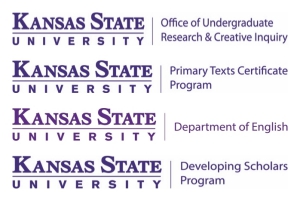Student Major/Year in School
Electrical Engineer, third year
Faculty Mentor Information
William Hsu, Computer Science Department, Kansas State University
Abstract
This project deals with autonomous mobile robots trained using reinforcement learning, a branch of machine learning (the science of improving problem-solving performance based on experience) based on choosing actions to maximize rewards from various environments. This is a form of behavioral learning that is observed in nature and thus more biologically plausible than cognitive models based on labeled data provided by a teacher (supervised learning). We developed an experimental test bed by implementing Deep Q-Networks (DQN), a form of reinforcement learning, for goal-oriented navigation and obstacle avoidance tasks using a TurtleBot3 Burger robot and in the gazebo simulation environment for behavior learning in autonomous agents. To achieve the goal of avoiding obstacles, the DQN Agent provides a positive reward to the robot whenever it gets closer to its goal and a negative reward when it is farther from its goal. The TurtleBot3 Burger requires a large number of training iterations before it achieves the goal and successfully avoids obstacles. Future work involves extending the reward functions so that DQN can be used to learn to solve fully autonomous exploration and mapping tasks, where the robot does not know the exact location of the goal.
Creative Commons License

This work is licensed under a Creative Commons Attribution-Noncommercial 4.0 License
Recommended Citation
Garrido Alvarez, Leonardo (2019). "DQN: Deep Q-Learning for Autonomous Navigation," Kansas State University Undergraduate Research Conference. https://newprairiepress.org/ksuugradresearch/2019/posters/8
DQN: Deep Q-Learning for Autonomous Navigation
This project deals with autonomous mobile robots trained using reinforcement learning, a branch of machine learning (the science of improving problem-solving performance based on experience) based on choosing actions to maximize rewards from various environments. This is a form of behavioral learning that is observed in nature and thus more biologically plausible than cognitive models based on labeled data provided by a teacher (supervised learning). We developed an experimental test bed by implementing Deep Q-Networks (DQN), a form of reinforcement learning, for goal-oriented navigation and obstacle avoidance tasks using a TurtleBot3 Burger robot and in the gazebo simulation environment for behavior learning in autonomous agents. To achieve the goal of avoiding obstacles, the DQN Agent provides a positive reward to the robot whenever it gets closer to its goal and a negative reward when it is farther from its goal. The TurtleBot3 Burger requires a large number of training iterations before it achieves the goal and successfully avoids obstacles. Future work involves extending the reward functions so that DQN can be used to learn to solve fully autonomous exploration and mapping tasks, where the robot does not know the exact location of the goal.


